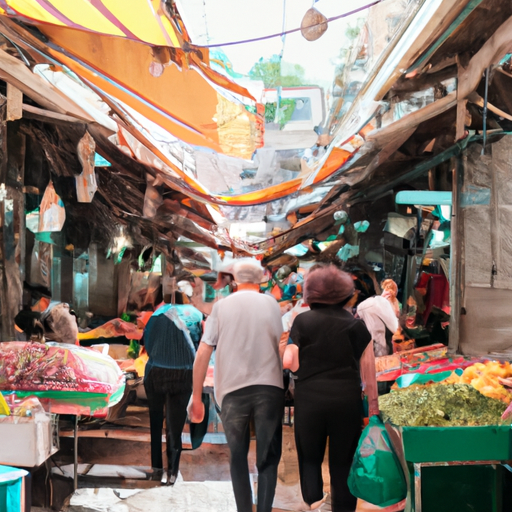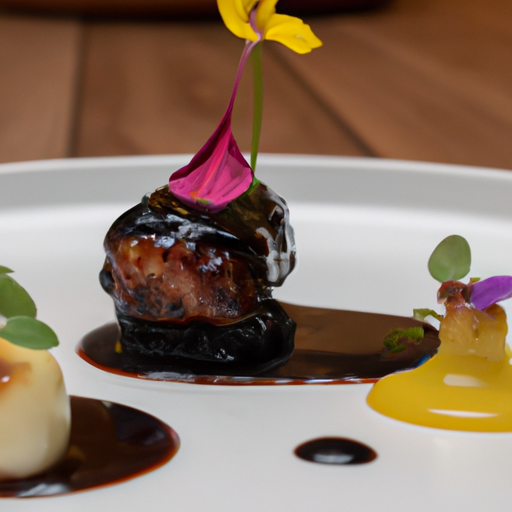Embark on an epicurean journey through the heart of Jerusalem with our guide to the best free culinary tours in the city. Discover the city's rich history, culture, and cuisine, from traditional markets to innovative culinary hotspots, all without spending a dime.
1. 'What's cooking in Jerusalem's markets?'
Jerusalem's markets are a vibrant hub for culinary delights, offering a sensory experience like no other. With a rich cultural heritage, these markets showcase the diverse flavors and ingredients that make up the city's unique cuisine.
At the Mahane Yehuda Market, locals and tourists alike can immerse themselves in a bustling atmosphere filled with the aroma of freshly baked bread, aromatic spices, and sizzling street food. Underneath the colorful canopies, vendors proudly display their produce, showcasing an array of vibrant fruits, vegetables, and herbs.
One can explore the market's narrow alleyways and discover traditional Middle Eastern ingredients such as za'atar, sumac, and tahini. From the tangy pickles at Azura to the mouthwatering halva at Halva Kingdom, there is no shortage of culinary treasures waiting to be savored.
In addition to the Mahane Yehuda Market, the Old City's Arab market, or "Souk," offers a captivating experience for food enthusiasts. Here, you can find an assortment of freshly baked pastries, aromatic spices, and traditional Middle Eastern sweets. The Souk also boasts a variety of street food stalls, where you can savor mouthwatering falafel, shawarma, and freshly squeezed pomegranate juice.

1. A bustling scene of Mahane Yehuda Market with vendors selling a variety of fresh produce and local delicacies.
2. 'Have you tasted the history of Jerusalem?'
Jerusalem is not just a city of the present; it is a city deeply rooted in history. And what better way to experience its rich past than through its culinary traditions? Each dish tells a story, and by savoring the flavors of Jerusalem, you are taking a bite out of its fascinating history.
From the iconic dish of falafel, believed to have originated in Egypt but popularized in Jerusalem, to the mouthwatering musakhan, a chicken and sumac flatbread dish that dates back centuries, the city's cuisine is a time capsule of flavors. Each bite transports you to a different era, allowing you to taste the influences of the various civilizations that have left their mark on Jerusalem.
The city's diverse population, including Jewish, Muslim, and Christian communities, has contributed to the eclectic culinary landscape of Jerusalem. Traditional Jewish dishes like matzo ball soup and gefilte fish can be found alongside Arab delicacies such as hummus and maqluba. These dishes are not just food; they are a testament to the coexistence and cultural exchange that has shaped Jerusalem throughout history.
One cannot talk about the history of Jerusalem's cuisine without mentioning the significance of the Sabbath meal. Friday evenings in Jerusalem are marked by the aroma of slow-cooked stews, fragrant couscous, and freshly baked challah bread. This ancient tradition, passed down through generations, is a celebration of the city's religious and cultural heritage.
3. 'Gourmet Jerusalem: A blend of tradition and innovation'
In the bustling culinary scene of Jerusalem, tradition and innovation beautifully merge to create a gourmet experience like no other. With a plethora of world-class restaurants, food markets, and innovative chefs, the city has become a haven for food enthusiasts seeking a unique gastronomic adventure.
- 1. Traditional Flavors, Modern Techniques:
Jerusalem's gourmet scene pays homage to its rich culinary heritage while embracing modern techniques and flavors. Chefs skillfully blend traditional ingredients and cooking methods with contemporary twists, resulting in dishes that are both familiar and exciting. From reinvented classics like modern interpretations of shawarma to innovative fusion dishes that combine Middle Eastern and international influences, Jerusalem's gourmet scene is a testament to the city's ability to honor its past while embracing the future. - 2. Farm-to-Table Ethos:
The farm-to-table movement has taken root in Jerusalem, with a focus on locally sourced, seasonal ingredients. Chefs and restaurants are dedicated to supporting local farmers and producers, ensuring that the freshest and most sustainable ingredients make their way to the plates of diners. This commitment to quality and sustainability not only enhances the flavors of the dishes but also supports the local economy and promotes a sense of community. - 3. Culinary Innovation and Experimentation:
Jerusalem's gourmet scene is not afraid to push boundaries and experiment with flavors and techniques. With a growing number of innovative chefs at the forefront of the city's culinary renaissance, diners can expect to encounter bold and unexpected flavor combinations, avant-garde plating, and unique dining experiences. From molecular gastronomy to inventive dessert creations, Jerusalem's culinary innovators are redefining the boundaries of taste and presentation.

3. An innovative dish from a modern Jerusalem restaurant, showcasing the city's culinary evolution.
4. 'Free, yet priceless: How do these culinary tours impact local communities?'
Culinary tours in Jerusalem not only offer a delightful experience for visitors but also have a significant impact on the local communities. These tours provide a platform for local food businesses, artisans, and producers to showcase their products and skills, thereby boosting the local economy. By featuring small-scale food vendors and traditional culinary practices, these tours help preserve cultural heritage and support the livelihoods of local communities.
Moreover, culinary tours often prioritize sustainable and ethical food practices, encouraging visitors to engage with local, organic, and seasonal ingredients. This emphasis on sustainable food systems not only benefits the environment but also supports local farmers and promotes a sense of food security within the community.
Furthermore, these tours foster a sense of community pride and identity. By highlighting the unique flavors and culinary traditions of Jerusalem, they help residents reconnect with their cultural roots and build a sense of belonging. The exposure gained from these tours also helps to promote the city as a culinary destination, attracting more visitors and generating further economic opportunities for locals.
Beyond the economic and cultural impact, culinary tours also create opportunities for cultural exchange and dialogue. As visitors explore the diverse food offerings of Jerusalem, they have the chance to interact with locals, learn about their stories, and gain a deeper understanding of the city's history and traditions. This exchange of experiences and knowledge helps bridge gaps between different cultures and promotes mutual respect and appreciation.
Jerusalem free tours offer a unique and enriching experience, allowing visitors to immerse themselves in the city's vibrant food scene. Whether you're a food enthusiast or a curious traveler, these tours will satiate your taste buds and your wanderlust, leaving you with a taste of Jerusalem that will linger long after your visit.